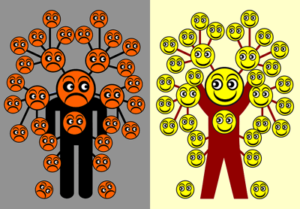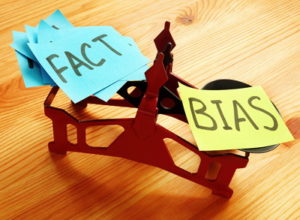 There are numerous things that can have an effect on someone’s mood. For some, the fact that the sun is shining will see them walk with a bit more bounce in their step. For others, the success of the football team that they support can put them in a positive frame of mind. Even something such as someone saying yes to going on a date can entirely alter the frame of mind of certain people. It is perhaps no surprise, therefore, that being in a good mood can alter the manner in which certain people approach risky situations.
There are numerous things that can have an effect on someone’s mood. For some, the fact that the sun is shining will see them walk with a bit more bounce in their step. For others, the success of the football team that they support can put them in a positive frame of mind. Even something such as someone saying yes to going on a date can entirely alter the frame of mind of certain people. It is perhaps no surprise, therefore, that being in a good mood can alter the manner in which certain people approach risky situations.
Studies show that people that are in a happy mood are more inclined to take a larger risk than those that aren’t. This is true in both young and old people, though young people are just as likely to take a risk if they are in a neutral mood as those in a happy one. Young people are also more likely to be guided by negative moods than older people, even though age was irrelevant when it came to how an approach to risk was dealt with. The question is, is it possible to avoid allowing risk to dictate how you approach betting?
What The Science Says
 Whilst it would be untrue to suggest that all psychologists feel the same way around the idea of risk taking and its link to mood, the reality is that the majority of those that have conducted studies into the matter say the same thing: a person’s mood can alter how they approach risk. Someone with a negative frame of mind is likely to be more conservative when it comes to whether or not to take a risk. Those in either a neutral mood or a positive mood had the same approach, which was to be slightly more risky in their approach.
Whilst it would be untrue to suggest that all psychologists feel the same way around the idea of risk taking and its link to mood, the reality is that the majority of those that have conducted studies into the matter say the same thing: a person’s mood can alter how they approach risk. Someone with a negative frame of mind is likely to be more conservative when it comes to whether or not to take a risk. Those in either a neutral mood or a positive mood had the same approach, which was to be slightly more risky in their approach.
Of course, there is a conversation to be had around the idea of what, exactly, a ‘neutral’ mood is. In theory it means that someone is neither in a good mood nor a bad one, but how often in life would you say you’ve genuinely been neutral rather than leaning slightly one way more than the other? You can feel as though you’re in a neutral mood before snapping at someone over something small, for example, or laughing at something that isn’t really that funny. The idea of being ‘neutral’ is perhaps a false one in some situations.
What we do know, however, is that people who are in a good mood are definitely more likely to take a risk than those that are in a negative frame of mind. It is fair to say that that makes a degree of sense. If you’re in a good mood then why wouldn’t you think that things were going to go your way? Equally, if you’re feeling as though everything is going against you then you’re much less likely to take a risk, presuming that you’ll end up on the losing side of any given situation and therefore wanting to avoid the possibility of that outcome.
Mood And Gambling
 The question that we’re interested in answering is whether someone’s mood can have a genuine effect on their gambling decisions. If someone is in a good mood and therefore more likely to be risky, will they have such an attitude when trying to win money? Equally, if someone is in a bad mood, does this naturally mean that they’re going to be more conservative when betting? Perhaps the most crucial question of all when it comes to gambling and your mood is what you can do to avoid falling foul of how you feel.
The question that we’re interested in answering is whether someone’s mood can have a genuine effect on their gambling decisions. If someone is in a good mood and therefore more likely to be risky, will they have such an attitude when trying to win money? Equally, if someone is in a bad mood, does this naturally mean that they’re going to be more conservative when betting? Perhaps the most crucial question of all when it comes to gambling and your mood is what you can do to avoid falling foul of how you feel.
There has been specific work into gambling, risk-taking and mood carried out by psychologists. In it, they discovered that mood and risk-taking is slightly different when gambling is involved. Known as the Mood Maintenance Hypothesis, the evidence suggests that people that are in a good mood are less likely to take a risk than those in a bad mood. It is believed that this is because they don’t want to risk both their mood and their money when faced with a possible gambling decision, instead opting to maintain their good mood.
Using Cognitive Affective Slots Experiments, psychologists showed that individuals tended to behave rationally across different mood states. They reflected real-world attitudes by continuing to gamble even when the odds were against them. It also discovered that ‘when participants reported experiencing greater affect on winning trials, their subsequent risk-taking was reduced’ . In other words, people that were in a good mood thanks to winning were less likely to take risks. This supported the idea of the mood maintenance hypothesis.
Cities Act Differently

Another interesting find by psychologists looking into the link between mood and risk-taking is that entire cities can be affected by positivity. A city that enjoys a day or two of sunshine after a prolonged period of rain or the victory of a local sports team can lead to a change in mood of the city overall. As a result, people are more likely to do risky things, such as gamble, if the mood in the city is good. McGill University used social media to measure a city’s mood and then look at an increase in risk-taking within that city.
McGill University looked specifically at the city of Chicago and discovered that the mood of the city was often heavily linked to how the White Sox performed the night before. One of the things that they looked at was whether people bought more or fewer lottery tickets when there was no incentive to do so. They discovered that gambling increased by about 2.5% per person when the city was deemed to be in a good mood. This was similar to how individual people tended to react to being in a good mood or otherwise when taking risks.
Choosing To Gamble But Not Take Risks
 The interesting thing about the work that we’ve discussed so far is that people can choose to take risks when in a good mood, but then reduce the risks that they take within the method of risk that they’ve chosen. What we mean by that is that people, like cities, might decide to gamble when they’re in a good mood. That doesn’t necessarily mean that they will then be more risky when it comes to their decision making during their time gambling, with some work even suggesting that people are less likely to take gambling risks when in a good mood.
The interesting thing about the work that we’ve discussed so far is that people can choose to take risks when in a good mood, but then reduce the risks that they take within the method of risk that they’ve chosen. What we mean by that is that people, like cities, might decide to gamble when they’re in a good mood. That doesn’t necessarily mean that they will then be more risky when it comes to their decision making during their time gambling, with some work even suggesting that people are less likely to take gambling risks when in a good mood.
Gambling, of course, is an inherently risky thing to do. Merely by choosing to gamble, someone is taking a risk that they might not otherwise take. That doesn’t automatically mean that they will continue to take risks during the period of time that they’re gambling. That being said, it’s worth noting that moods are ever-changing. You could be in a good mood, decide to gamble and suddenly get into a bad mood because you’ve lost a good chunk of your money. This might lead to you gambling more and your mood changing as a result.
Both moods and fortunes are fickle mistresses. Given the manner in which they are intrinsically linked, it is perhaps not a surprise to learn that a change in one can alter the other. Good fortune might put someone in a positive frame of mind, which might lead them to believe that they can’t lose when gambling. The outcomes from gambling can in itself alter out moods, which can create a feedback loop. Often when we win people can feel superstitious that ‘they are on a roll’ and feel they need to act by placing more bets.
The winning of money might also lead someone to decide that they want to protect their newly won money as well as their good mood, so they begin acting in a more conservative manner to how they were when winning.
Equally, a series of bad luck might put someone in a foul mood. The result of this could be that they decide to be far more conservative in their betting in the hope that they will be able to turn their fortunes around. For others, the bad mood might make then reckless in their decision making, suddenly betting more money or on riskier outcomes than they were before their mood changed. It will be different for each person, with everyone having their own attitude towards both betting and the moods that they find themselves in at any given moment.
Avoiding Falling Foul Of Your Moods
 Just because some people have their gambling habits altered by their mood doesn’t mean that everyone does. Even if you’re the sort of person that does indeed alter how their betting depending on how they feel, that doesn’t mean that you’re locked into that pattern for the rest of your life. Instead, you can choose to follow your own path and go down a road that ensures that you make the sensible decision as often as possible, irrespective of the mood that you’re in at any given moment. It sounds easy, but is that really the case?
Just because some people have their gambling habits altered by their mood doesn’t mean that everyone does. Even if you’re the sort of person that does indeed alter how their betting depending on how they feel, that doesn’t mean that you’re locked into that pattern for the rest of your life. Instead, you can choose to follow your own path and go down a road that ensures that you make the sensible decision as often as possible, irrespective of the mood that you’re in at any given moment. It sounds easy, but is that really the case?
The first thing that you need to do is to learn how to assess your own mood. This isn’t necessarily a simple thing to do, given that we are all affected by how we feel from one minute to the next. It is, perhaps, worth finding a touchstone that we can refer to when trying to figure out our own mood. Maybe you can think of someone you really don’t like and then decide on whether you like them more when you’re in a good mood or like them less when you’re not. This might help to indicate how it is that you’re feeling at any given time.
Removing Mood As An Influencer
 The best thing that we can do, of course, is to completely remove mood as a possible influencer over our gambling decisions. There are several ways we can do this, but the most useful one is to ensure that every decision we make when betting has been sensibly evaluated. Regardless of whether you’re betting on sports or on casino games, you can work hard to be certain that the decision that you’re making is the most sensible one. This is thanks to the fact that there is plenty of information on all games and sports out there on the internet.
The best thing that we can do, of course, is to completely remove mood as a possible influencer over our gambling decisions. There are several ways we can do this, but the most useful one is to ensure that every decision we make when betting has been sensibly evaluated. Regardless of whether you’re betting on sports or on casino games, you can work hard to be certain that the decision that you’re making is the most sensible one. This is thanks to the fact that there is plenty of information on all games and sports out there on the internet.
One of the most important things that you can do as a bettor is note which bets are the worst ones to place. You can still place them, of course, but it’s crucial that you know that you’re going to have to be extremely lucky to see them come home. Here we’re talking about the likes of a First Goalscorer bet or an accumulator with a wealth of different legs involved. In essence, the bigger the possible payout, the more of a difficult wager it is to win and the larger the bookmaker’s margin is going to be on that bet, making it poor value.
Again, most punters will still place accumulator bets or look towards First Goalscorer wagers because they are following their heart rather than their head, but that is the sort of betting that can lead to money being lost and moods being altered for the worse. If you want to do your best to stop your mood influencing your betting decision making then you really need to look at the cold, hard facts in any given situation and ignore all of the exterior noise that might be influencing how you approach the bets that you place.
Ultimately, your mood can only influence your betting if you abandon the research and well-thought out approach that we recommend you use every time that you place a wager. Good moods might lead to you being more conservative than you should be, whilst bad ones might make you more reckless. The sensible thing to do is look at the evidence and make a decision based on that, not on how you feel. You will win some bets you thought were outsiders and lose others that you thought were bankers, but this should change how you feel or the bets that you place in the future.
